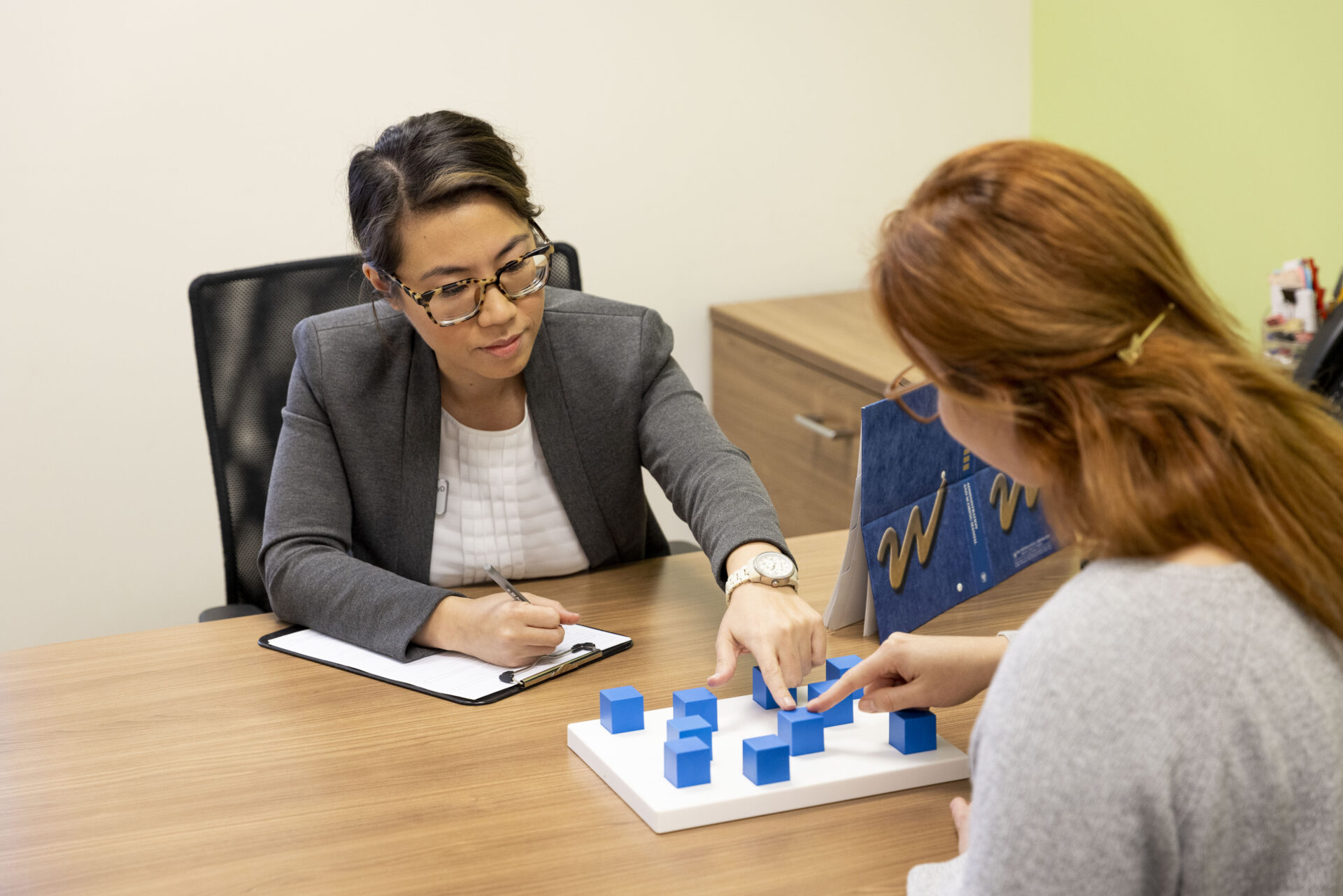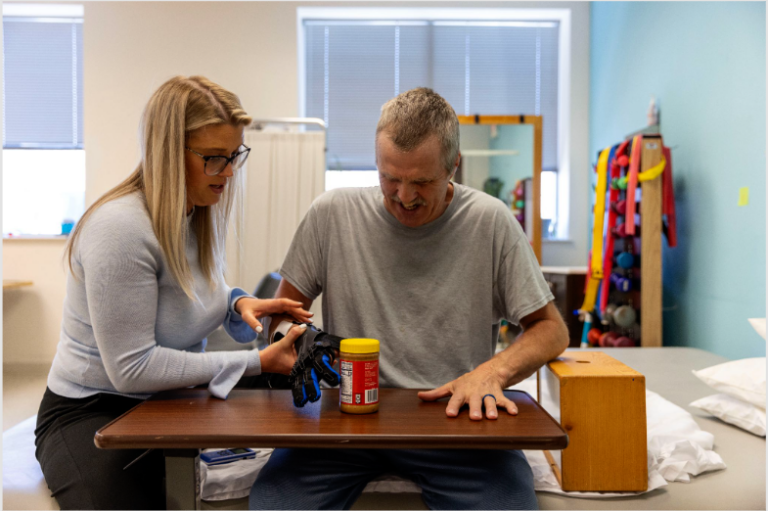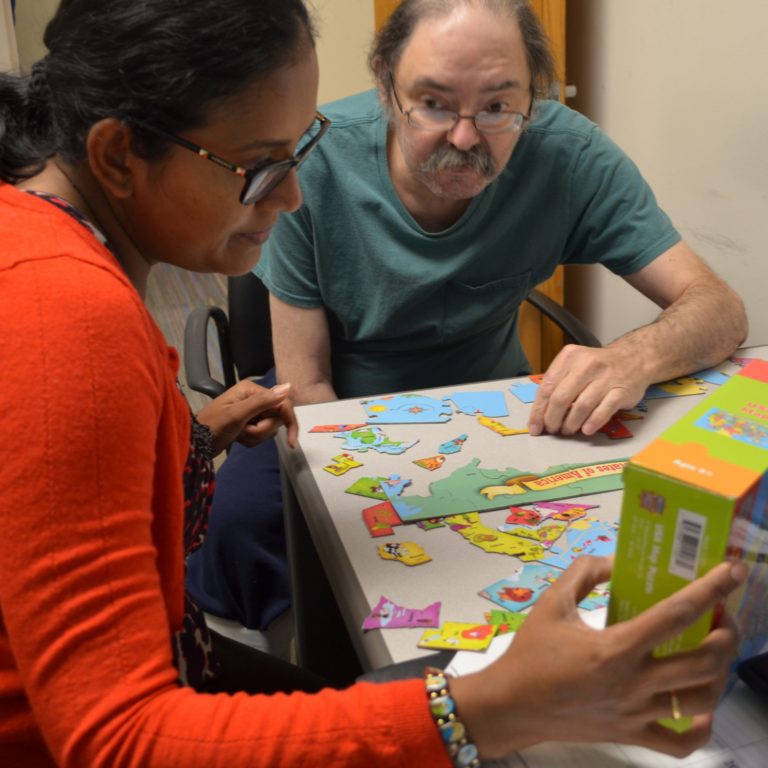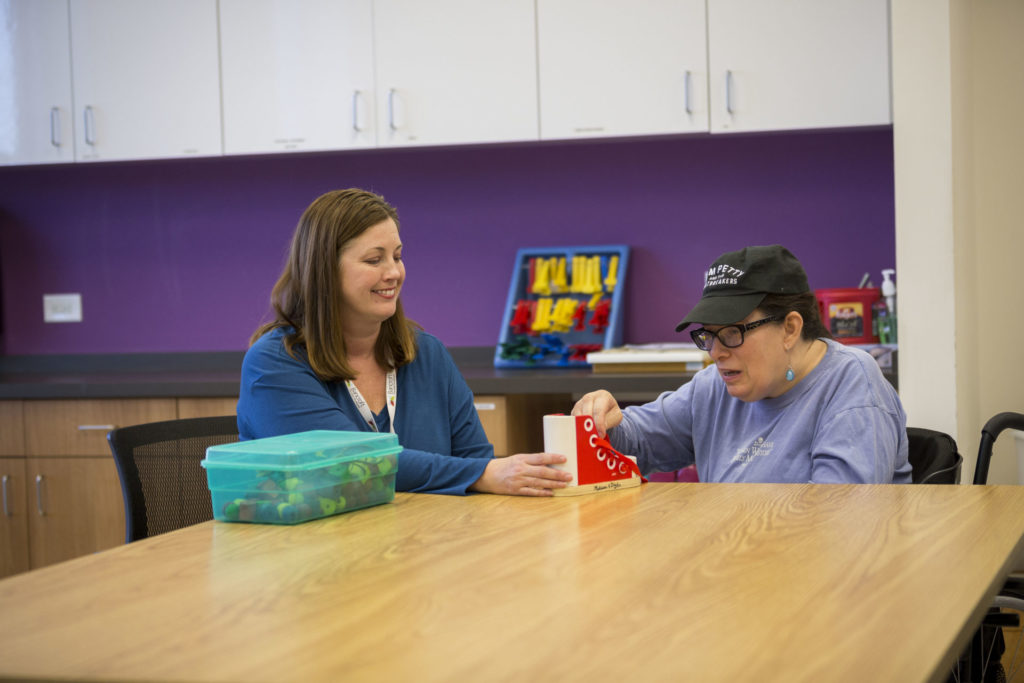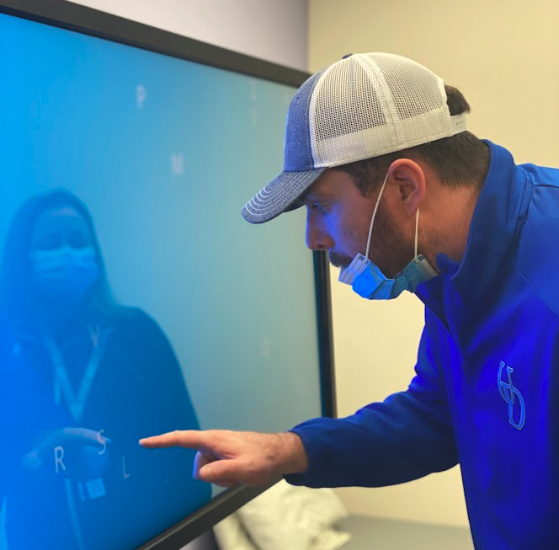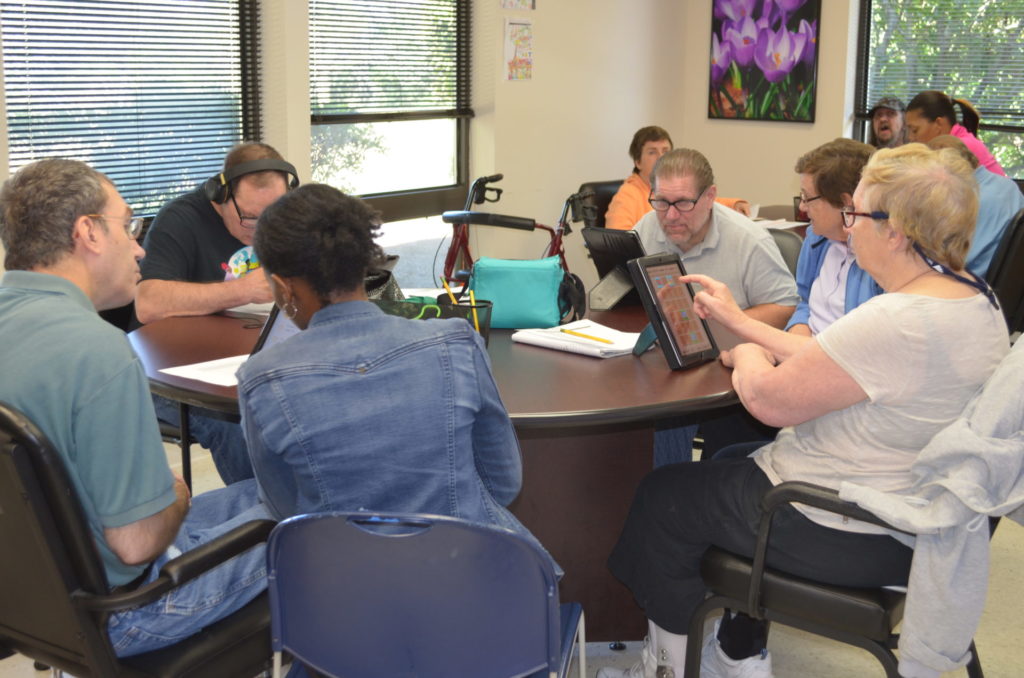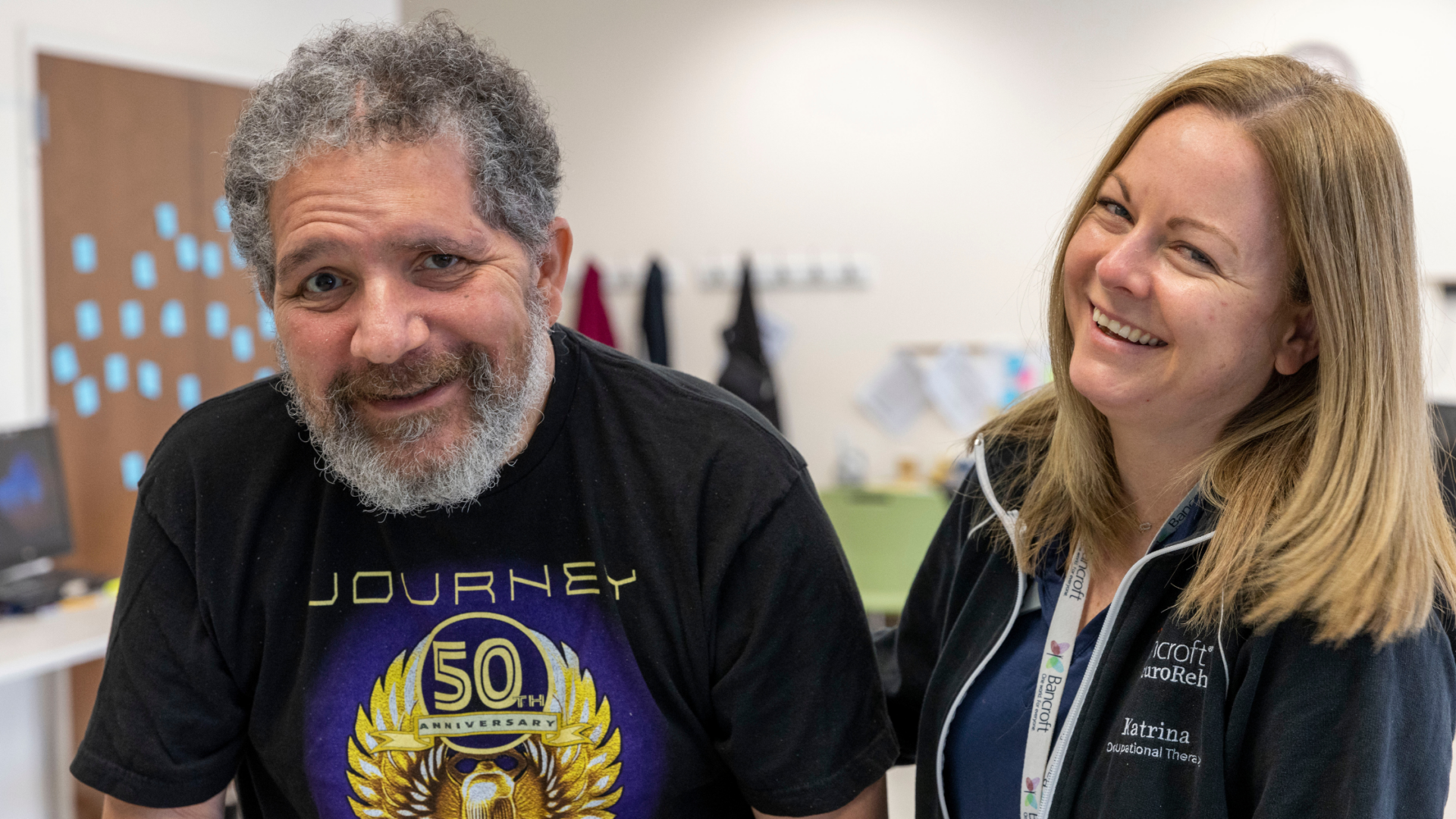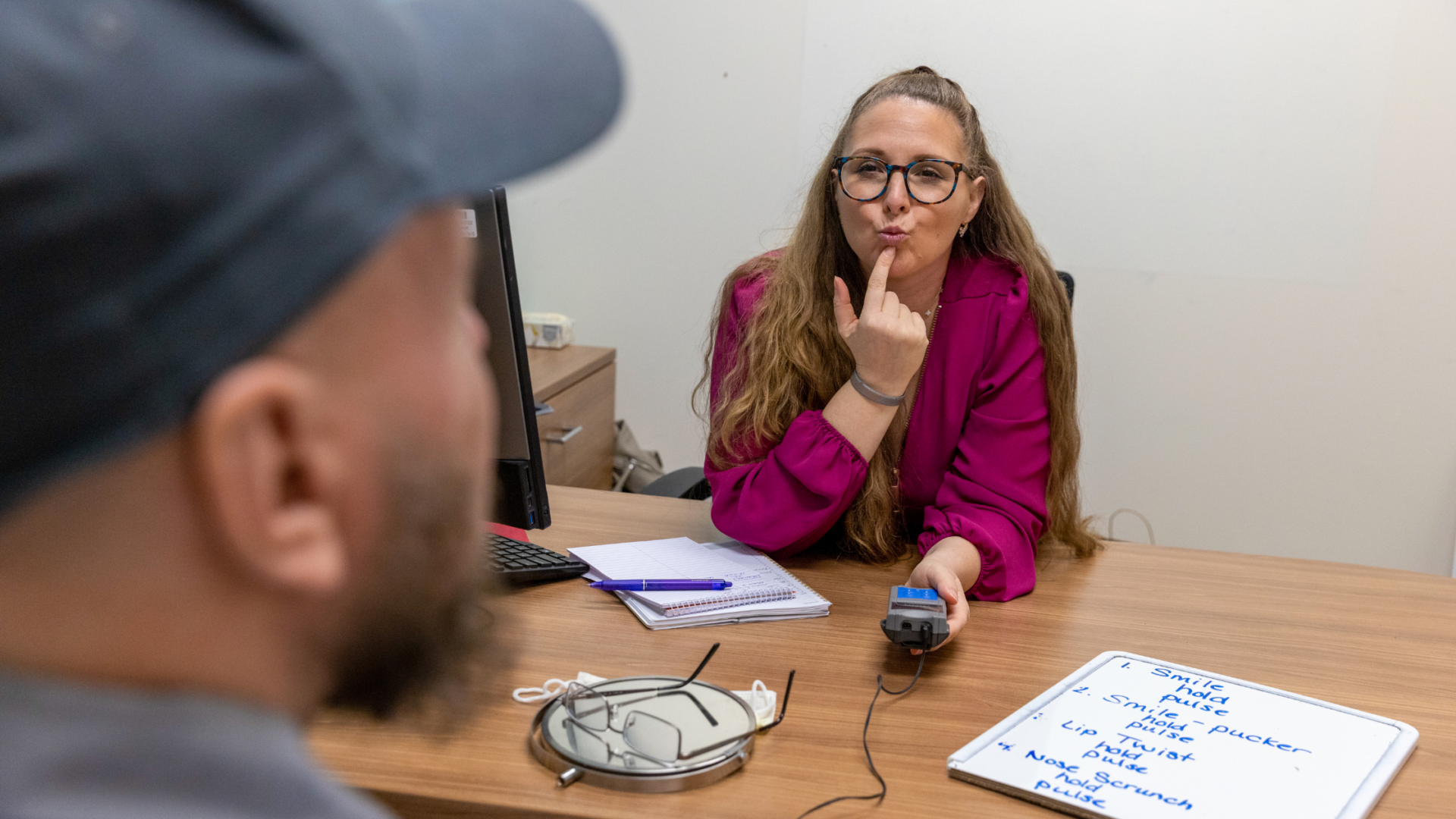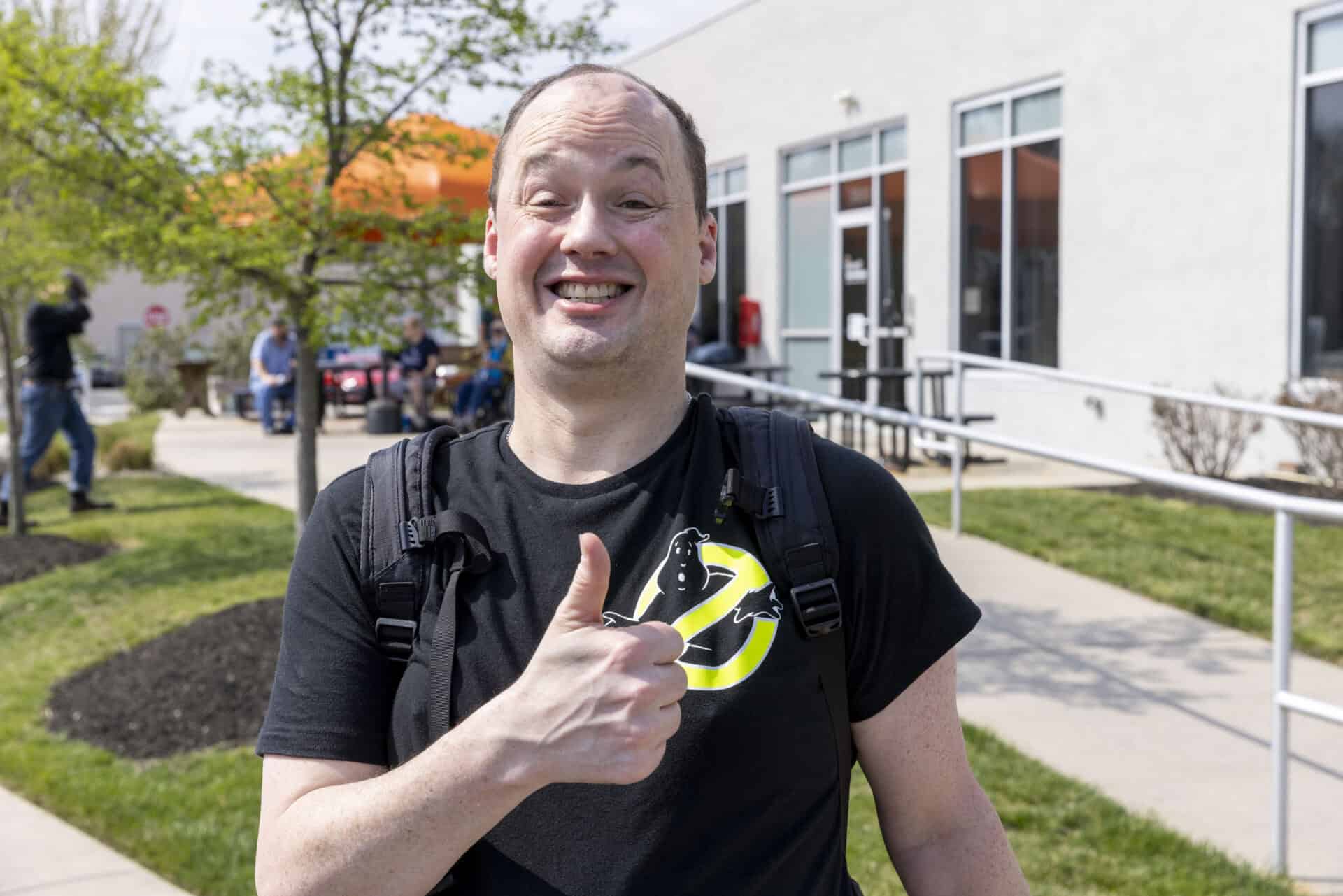If you’ve experienced a brain injury, you may be wondering what dating will look like now. You might have questions about how to meet new people, when to talk about your injury, or how to build new connections. Life may feel different after a brain injury, but that doesn’t mean meaningful, fulfilling relationships aren’t still possible.
This guide, created by Bancroft NeuroRehab clinical psychologist Kathryn Murray, Psy.D., explores how brain injury can affect relationships, offers strategies for navigating relationships confidently, and provides tips for staying safe while meeting new people.
Understanding the Impact of Brain Injury on Relationships
After a brain injury, your relationships might feel different, and that’s okay. You may notice changes in the way that you think, feel or interact with others. These shifts can make dating more challenging, but understanding them is the first step toward building strong, healthy connections.
Common challenges include:
- Physical changes — You might feel more tired than before, have trouble moving around, or experience pain that makes it harder to go out and do social activities.
- Cognitive changes — Things like memory, attention, language, and communication can be affected. You might find it harder to follow conversations, remember details, or express your thoughts clearly.
- Emotional shifts — Such as mood swings, depression, anxiety, or trouble controlling emotions, which can make relationships feel unpredictable or overwhelming at times.
- Social changes—You might struggle with picking up on social cues, starting conversations, or understanding body language, which can sometimes lead to misunderstandings.
These challenges don’t mean you can’t have healthy and fulfilling relationships. Understanding what’s different and learning new strategies can help you feel more confident when meeting new people or strengthening existing relationships.
The Importance of Communication
Effective communication is the foundation of any relationship. You might wonder what to say about your brain injury or when to say it. There’s no right or wrong answer—it’s about what feels right to you. Here are a few helpful strategies:
- Be honest, but go at your own pace. Some may choose to talk about their injury right away, while others may wait until they feel more comfortable later.
- Say what you need. If you need extra time to process conversations or prefer a quiet setting, let the other person know.
- Use assertive communication. Maintain eye contact, use a clear tone, and ask questions to keep the conversation balanced.
- Get support if you need it. A therapist or counselor can help you build confidence and communication skills.
Preparing for Dating
Before stepping into the dating world, take some time to reflect on what you’re looking for in a relationship. Consider questions like:
- How do I feel about physical touch and emotional connection?
- How much time do I want to spend with a partner?
- What qualities are most important to me in a relationship?
- How can I handle rejection in a healthy way?
- What expectations do I have on how relationships should progress?
There’s no”‘right” way to date – just what works best for you.
Online Dating Safety
Online dating can be a great way to meet new people, but safety is essential. Keep these tips in mind:
- Use reputable dating sites — including those tailored for individuals with disabilities or ABI.
- Avoid sharing personal details –– (e.g., full name, address) too soon.
- Meet in public places for the first few dates — inform a trusted friend or family member about your plans.
Be cautious of potential scams and trust your instincts — If something feels off, take a step back and seek advice from a trusted source.
Handling Relationship Challenges
If you’re already in a relationship, you may notice that things feel different after your injury. That’s okay—relationships grow and change over time. Here are some ways to keep your connection strong:
- Talk openly about changes –– If your roles or responsibilities have shifted, have honest conversations about what each of you needs.
- Consider therapy –– Such as emotionally-focused couples therapy, which can help you and your partner communicate better and understand each other’s challenges.
- Practice empathy –– Understanding each other’s points of view, struggles and perspectives will be more helpful as you both adjust to the relationship.
- Develop coping skills –– If mood swings or frustration arise, explore coping strategies like deep breathing or taking breaks.
Bringing up dating and relationships with your doctor or therapist might feel awkward, but your healthcare provider is there to offer helpful advice. If you’re unsure how to start the conversation, you can start with questions like:
- “I’d like to talk about dating and relationships. Can you help me with that?”
- “I’ve been struggling with communication in my relationship. Do you have any suggestions?”
- “Are there any resources for people with brain injuries who want to start dating?”
Healthcare professionals—including therapists, social workers, and psychologists—can support you by offering guidance on:
- Relationship counseling and emotional support for both partners.
- Safe dating practices and communication strategies.
- Managing emotional and cognitive challenges in relationships.
- Addressing impulsivity, social anxiety, or low initiation in social interactions.
- The EX-PLISSIT model, allows providers to offer permission to discuss these topics, provide limited information, and make specific suggestions when necessary.
Dating after a brain injury may come with new challenges, but it’s possible to build strong and meaningful relationships. By practicing clear communication, taking things at your own pace, and prioritizing safety, you can navigate the dating world with confidence. Remember, relationships are about connection and support––you deserve to be with someone who respects and values you.
Additional Resources
Brain injury support groups provide space to meet others, gain emotional support, and share valuable insights. If you’re interested in attending, visit BIANJ Monthly Support Groups to learn more.


Dr. Kathryn Murray is a licensed clinical psychologist with expertise in neuropsychological evaluations and biofeedback therapy, gained through training at Widener University and Jefferson University Hospitals. Currently at Bancroft NeuroRehab, she provides psychological services to individuals with TBI and neurological conditions, drawing from her experience with diverse populations including those with learning disabilities, ADHD, and dementia.



